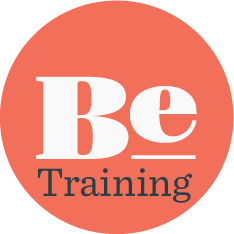New publication in the journal of Harm Reduction Human service settings, especially those not specifically focused on supporting people who use drugs (PWUD), offer a unique opportunity to prevent overdose […]
Tag: Harm reduction
[IN-PERSON TRAINING] Opioid Overdose Rescue & Prevention (CEUs)
9:30am – Check-in & Breakfast 10am – Training Begins Opioid Overdose Rescue (Part 1) Participants will learn about opioids and risk factors for overdose. They will then explore strategies […]
Read More… from [IN-PERSON TRAINING] Opioid Overdose Rescue & Prevention (CEUs)
[VIRTUAL TRAINING] Sharing Power with Youth: Building Relationships Through Harm Reduction (CEUs)

Recent studies show a dramatic increase in drug overdose deaths among American teenagers as fentanyl contamination becomes more prevalent in drugs used by young people. Young people are very receptive […]
[IN-PERSON TRAINING] Linking Reproductive Justice and Harm Reduction: Promoting Clients’ Bodily Autonomy (CEUs)

9:30am – Check-in & Breakfast 10am – Training Begins The fight for reproductive justice shares profound similarities with the movement for harm reduction. These decades-old, grassroots struggles advocate for […]
[IN-PERSON WORKSHOP] Training of Trainers: Opioid Overdose Rescue (CEUs)
9:30am – Check-in & Breakfast 10am – Workshop Begins This full-day workshop will prepare new trainers to deliver our two-hour overdose rescue training to members of their staff and […]
Read More… from [IN-PERSON WORKSHOP] Training of Trainers: Opioid Overdose Rescue (CEUs)
[VIRTUAL TRAINING] Opioid Overdose Prevention (CEUs)
Participants will explore strategies to address the risks of overdose with a harm reduction approach. The scenario-based training providers opportunities for discussion and practice about issues of safety, grief, and […]
Read More… from [VIRTUAL TRAINING] Opioid Overdose Prevention (CEUs)
[VIRTUAL TRAINING] Opioid Overdose Rescue (CEUs)
Participants will learn about opioids and risk factors for overdose. They will then explore strategies for rescues and practices strategies through scenarios. Learning Objectives: Name 5 risk factors for […]
Read More… from [VIRTUAL TRAINING] Opioid Overdose Rescue (CEUs)
[DEADLINE] Applications due for “Improving Overdose Safety at Work: A Public Health Learning Cohort”
Applications are now open for BeHERE’s Improving Overdose Safety at Work: A Public Health Learning Cohort. APPLY HERE Improving Overdose Safety at Work is a FREE opportunity to learn in a peer setting about […]
[Cohort] Improving Overdose Safety at Work: A Public Health Learning Cohort





















Health Resources in Action’s Behavioral Health and Racial Equity Initiative, or BeHERE, is proud to announce the launch of Improving Overdose Safety at Work: A Public Health Learning Cohort focused on overdose prevention, response, […]
Read More… from [Cohort] Improving Overdose Safety at Work: A Public Health Learning Cohort
[Workshop] Reflecting on Grief & Loss: A Grounded Workshop for Service Providers (5-6 hours)





















[VIRTUAL TRAINING] Linking Reproductive Justice and Harm Reduction – Promoting Clients’ Bodily Autonomy (CEUs)





















The fight for reproductive justice shares profound similarities with the movement for harm reduction. These decades-old, grassroots struggles advocate for the protection of individual bodily autonomy from violation, surveillance, and […]
[VIRTUAL TRAINING] Sharing Power with Youth – Building Relationships Through Harm Reduction (CEUs)





















Recent studies show a dramatic increase in drug overdose deaths among American teenagers as fentanyl contamination becomes more prevalent in drugs used by young people. Young people are very receptive […]
[IN-PERSON TRAINING] Working with People Who Use Stimulants (CEUs)





















As drug use changes and evolves in Massachusetts and beyond, we need to be prepared to support clients no matter what substances they use. Learn the basics of what stimulants […]
Read More… from [IN-PERSON TRAINING] Working with People Who Use Stimulants (CEUs)
[IN-PERSON TRAINING] Challenging Narratives: Understanding Alcohol Use from an Equity Lens (CEUs)
This three-hour training will explore the definition and impacts of alcohol use, recognizing the spectrum of use from abstinence to addiction. Specifically, we will examine the social determinants of alcohol […]
[IN-PERSON TRAINING] Supporting People Who Use Drugs: Strategies for Service Providers (CEUs)
This three-hour training will offer participants an opportunity to explore reasons why people may use drugs, how we can assess risk using the “drug, set, setting” model, and how we […]
[VIRTUAL TRAINING] Analyzing the U.S. War on Drugs & Racist Drug Policies (CEUs)





















This three-hour professional development module is intended to educate different service providers, community members, coalitions, and other entities on the War on Drugs and how it has fostered racialized drug […]
Read More… from [VIRTUAL TRAINING] Analyzing the U.S. War on Drugs & Racist Drug Policies (CEUs)
[IN-PERSON SUMMIT] Resiliency for Service Providers
REGISTER Resiliency for Service Providers: How Can Our Community Process Grief and Promote Healing in Times of Loss? Wednesday, June 14th 9:30am-3:00pm AC Hotel by Marriott, Worcester 125 Front […]
Read More… from [IN-PERSON SUMMIT] Resiliency for Service Providers
[Publication] BeHERE Training 2022 Evaluation – Executive Summary





















This Executive Summary discusses the evaluation of BeHERE trainings delivered between April 2020 and June 2022. In 2022, HRiA engaged evaluation consultant Hope Worden Kenefick, MSW, PhD and MPH candidate […]
Read More… from [Publication] BeHERE Training 2022 Evaluation – Executive Summary
[VIRTUAL TRAINING] Secondary Trauma and Helping Professionals





















This non-clinical training module covers secondary trauma and cumulative stress with a specific focus on wellness and safety for service providers working in direct care with people who use drugs. […]
Read More… from [VIRTUAL TRAINING] Secondary Trauma and Helping Professionals
[VIRTUAL TRAINING] Exploring Pathways of Recovery





















When we recognize that recovery looks different for every person, we can better advise our clients. This three-hour training will introduce various forms of recovery, from medication to 12-step programs […]
Read More… from [VIRTUAL TRAINING] Exploring Pathways of Recovery
[IN-PERSON TRAINING] – Addressing Drug-Related Stigma & Bias (CEUs)
Drug-related stigma presents barriers to effectively supporting clients who use drugs. Our biases are learned from a culture that stigmatizes drug use and ostracizes those with substance use disorders. This […]
Read More… from [IN-PERSON TRAINING] – Addressing Drug-Related Stigma & Bias (CEUs)
[VIRTUAL TRAINING] Opioid Overdose Prevention (Part 2 of 2)
During this two-hour training, participants will explore strategies to address the risks of overdose with a harm reduction approach. The scenario-based training provides opportunities for discussion and practice about issues […]
Read More… from [VIRTUAL TRAINING] Opioid Overdose Prevention (Part 2 of 2)
[VIRTUAL TRAINING] – Supporting People Who Use Drugs: Strategies for Service Providers (CEUs)
This three-hour training will offer participants an opportunity to explore reasons why people may use drugs, how we can assess risk using the “drug, set, setting” model, and how we […]
[VIRTUAL TRAINING] Challenging Narratives: Understanding Alcohol Use from an Equity Lens (CEUs)
This three-hour training will explore the definition and impacts of alcohol use, recognizing the spectrum of use from abstinence to addiction. Specifically, we will examine the social determinants of alcohol […]
[VIRTUAL TRAINING] Opioid Overdose Rescue (Part 1 of 2)
This two-hour training will introduce opioids and risk factors for overdose. Participants will learn skills for overdose rescue and practice using scenarios. Part 1 of 2. Click here to register. […]
Read More… from [VIRTUAL TRAINING] Opioid Overdose Rescue (Part 1 of 2)
[Workshop] Promising Policies & Practices in Overdose Prevention, Response, & Postvention (5-6 hours)





















VIRTUAL TRAINING: Secondary Trauma and Helping Professionals





















This non-clinical training module covers secondary trauma and cumulative stress with a specific focus on wellness and safety for service providers working in direct care with people who use drugs. […]
Read More… from VIRTUAL TRAINING: Secondary Trauma and Helping Professionals
VIRTUAL TRAINING: Working with People Who Use Stimulants





















As drug use changes and evolves in Massachusetts and beyond, we need to be prepared to support clients no matter what substances they use. Learn the basics of what stimulants […]
Read More… from VIRTUAL TRAINING: Working with People Who Use Stimulants
VIRTUAL TRAINING: Best Supervisory Practices: Working through Incidents & Crises (w/CEUs)





















This non-clinical supervision training is designed to educate and build skills around best supervisory practices for people who are working in direct human services and social services fields, including substance […]
VIRTUAL TRAINING: Addressing Drug-Related Stigma & Bias





















Drug-related stigma presents barriers to effectively supporting clients who use drugs. Our biases are learned from a culture that stigmatizes drug use and ostracizes those with substance use disorders. This […]
Read More… from VIRTUAL TRAINING: Addressing Drug-Related Stigma & Bias
Community Naloxone Purchasing Program










This program aims to fill gap between pharmacies and OEND programs through a streamlined system to order naloxone from the state. […]
Housing as Harm Reduction Webinar










March, 30, 2022. The Opioid Overdose Prevention Training Project (now part of HRiA’s BeHERE Initiative), held their 11th successful summit, Housing as Harm Reduction: Exploring Models to Support People Who […]
Illinois Helpline – Medication Assisted Recovery (MAR) resources for clinicians










This site offers support for Illinois-based clinicians providing MAR, also known as Medications for Opioid Use Disorder (MOUD). In the Toolkits, watch quick video guides for clinicians providing MAR and […]
Read More… from Illinois Helpline – Medication Assisted Recovery (MAR) resources for clinicians
[Training] Preventing Injury, Pain & Opioid Use in the Workplace





















This training for employers will describe how workplace conditions may lead to injury, pain, and opioid use, explore strategies to create a work environment that will help prevent opioid use […]
Read More… from [Training] Preventing Injury, Pain & Opioid Use in the Workplace
Vermont Helplink










VT Helplink is your statewide, public resource for finding substance use treatment and recovery services in Vermont. Helplink services are free and confidential. Our caring, trained Specialists will help you […]
Massachusetts Substance Use Helpline










The Helpline is the only statewide, public resource for finding substance use treatment, recovery, and harm reduction services in Massachusetts. Helpline services are free and confidential. Our caring, trained Specialists […]
Illinois Helpline for Opioids & Other Substances










The IL Helpline is the only statewide, public resource for finding substance use treatment and recovery services in Illinois. The IL Helpline serves people using opioids and other substances, with […]
Read More… from Illinois Helpline for Opioids & Other Substances
Engaging service providers as harm reductionists: Learning to implement harm reduction strategies amidst organizational and institutional barriers










This abstract describes a presentation from the APHA 2020 annual conference where we shared a framework of harm reduction and explore the ways that organizations can implement harm reduction practices […]
Nothing For Us Without Us: Peer-Based Recovery Is The Latest In A Long History Of Consumer-Driven Movements










This blog post describes a growing movement that is revolutionizing how we approach substance use disorder (SUD) treatment and view recovery – changing our language, helping to remove stigma, and […]
Social Distancing and Recovery from Substance Use










This article explores how people can continue in their recovery and stay healthy and how loved ones can help during this or any future public health crisis. […]
Read More… from Social Distancing and Recovery from Substance Use
Naloxone/overdose prevention




Everyone can play a role in preventing overdose. People who actively use opioids, friends and family, first responders, and even community members can help prevent and stop overdose. This page […]
Naloxone facts and formulations




This page provides facts about naloxone (Narcan) and guidance on how to obtain and use it to reverse overdose. […]
[Workshop] Training of Trainers – Opioid Overdose Rescue and Naloxone Administration (5-6 hours)





















Schedule a Training of Trainers […]
[Training] Best Supervisory Practices: Working through Incidents & Crises (3 hours)





















This three-hour, non-clinical training is intended to provide supervisors with the best practices and tools for nurturing and supporting staff who work in substance use, harm reduction, homeless services, and […]
Read More… from [Training] Best Supervisory Practices: Working through Incidents & Crises (3 hours)
[Training] Exploring Pathways of Recovery (3 hours)





















When we recognize that recovery looks different for every person, we can better advise our clients. This three-hour training will introduce various forms of recovery, from medication to 12-step programs […]
Read More… from [Training] Exploring Pathways of Recovery (3 hours)
[Training] Addressing Drug-Related Stigma and Bias (3 hours)





















Drug-related stigma presents barriers to effectively supporting clients who use drugs. Our biases are learned from a culture that stigmatizes drug use and ostracizes those with substance use disorders. This […]
Read More… from [Training] Addressing Drug-Related Stigma and Bias (3 hours)
[Training] Opioid Overdose Prevention: Harm Reduction & Safety Planning with Clients (2.5 hours)



Contact us for trainings. […]
[Training] Opioid Overdose Rescue (2.5 hours)



Contact us for trainings. […]
Read More… from [Training] Opioid Overdose Rescue (2.5 hours)
RIZE Toolkit: Your Rights in Recovery




Recovery from opioid use disorder (OUD) is a life-long journey and can look different for everyone. Wherever you are in your recovery, this toolkit offers the support and resources people […]